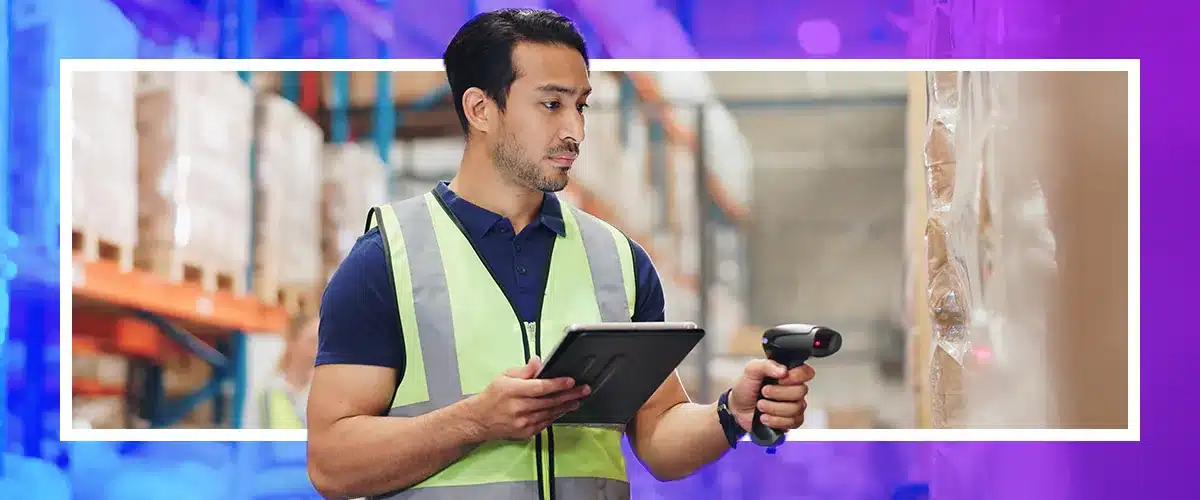To stay competitive in the rapidly evolving logistics landscape, third-party logistics (3PL) providers should adopt advanced software solutions. These best solutions for your team should have high ratings for integration, automation, and scalability, three essential features for high-volume fulfillment. The more integrations, automation functions, and scalability a program offers, the more efficient your workflow will become. This results in fewer errors, increased productivity, and higher customer satisfaction.
However, with so many tools on the market, choosing the best 3PL software for operational success can be challenging. That’s why we’ve compared three leading 3PL software platforms — Logiwa IO, Extensiv, and Deposco — based on their ability to meet the core needs of modern fulfillment providers: integration, automation, and scalability.
Key features essential for high-volume fulfillment
For our comparative analysis of Logiwa IO, Extensiv, and Deposco, we looked at key features required for high-volume fulfillment.
Integration
The best 3PL software solutions provide a wide range of integrations and open application programming interfaces (APIs) to allow you to effortlessly connect with ecommerce tools like Shopify and WooCommerce. This ensures product listings, orders, and customer data flow smoothly between systems without the need for manual intervention.
Besides ecommerce platforms, leading 3PL solutions should also connect with stores and marketplaces, warehouses, vendors, business intelligence (BI) tools, shipping carriers, and enterprise resource planning (ERP) tools. With these integrations, you can easily pull or push real-time data — such as financial reports, order statuses, and inventory levels — across your entire logistics ecosystem.
Scalability
Scalability is also crucial for high-volume fulfillment. Scalable 3PL solutions for ecommerce empower your business to grow without extensive reconfigurations, lengthy onboarding processes, or costly hardware upgrades and downtime.
Look for 3PL software solutions that provide real-time inventory tracking and visibility. These tools will give you accurate, up-to-date data to confidently expand into new warehouses, handle seasonal spikes, and onboard clients on demand.
Your chosen software solution should also allow you to manage multiple customers through a single platform. This function simplifies onboarding, streamlines operations, and drives sustainable company growth.
Automation
Last but not least, your 3PL software should use AI and machine learning to automate repetitive tasks such as inventory allocation, order processing, and exception handling.
Advanced automation features include:
- AI-powered inventory forecasting to help prevent stockouts or overstocking.
- Automated order routing (AOR), which uses pre-defined rules or logic to automatically determine the best fulfillment location for an order. It evaluates orders based on factors like product availability, proximity, and shipping methods.
- Automated truck loading systems (ATLS) to automate the process of loading and unloading trucks, removing the need for human intervention.
Unlock a personalized tour of Logiwa IO
Comparative analysis of leading 3PL software solutions
Now that you have a clear understanding of the key features essential for high-volume fulfillment, let’s dive into the comparative analysis of Logiwa IO, Extensiv, and Deposco.
Logiwa IO
Logiwa IO is an AI-powered fulfillment management system (FMS), an evolution beyond traditional WMS.
Unlike traditional WMS platforms, which usually focus on single-warehouse inventory management and operations, Logiwa IO FMS boosts the ability to route and process omni-channel inventory and orders across multiple fulfillment centers.
Here’s how Logiwa IO performs integration, scalability, and automation:
- Integration: Logiwa IO provides an open REST API for custom integrations, which means virtually unlimited integrations with ecommerce and shipping platforms. It also has a growing app store ecosystem.
- Scalability: Logiwa IO is also highly scalable. Thanks to its cloud-native architecture, Logiwa IO supports unlimited warehouses and clients. It also has a volume-based pricing model that aligns with business growth.
- Automation: Logiwa IO uses AI-powered automation and smart automation rules to streamline every step of the fulfillment process. These rules allow you to predefine actions based on inventory thresholds, order types, or shipping conditions, enabling the system to handle complex workflows automatically. Other AI features include real-time exception handling and automated shipping workflows like label printing and routing. Together, Logiwa IO’s AI features significantly reduce manual labor and boost operational efficiency.
Extensiv
Extensiv, formerly Skubana, is a cloud-based automated 3PL fulfillment software created by and for 3PL providers.
Compliant with UCC-128/GS1-128 barcode standards, Extensiv allows businesses to track and manage goods throughout the supply chain. It also provides other tools to boost customer satisfaction, create efficient operations, and expand operations.
Here’s how Extensiv handles integration, scalability, and automation:
- Integration: This software integrates with over 150 leading platforms, including ERPs, carriers, and marketplaces. It also supports custom workflows, allowing users to tailor processes to meet client requirements.
- Scalability: Extensiv provides end-to-end visibility across multiple warehouses, giving you a unified view of your operations. Extensiv also offers dynamic order routing based on customer proximity and stock levels.
- Automation: Extensiv streamlines fulfillment operations through automated billing designed specifically for 3PL services. It also provides intuitive dashboards that offer real-time visibility into fulfillment progress.
Deposco
Deposco is warehouse management software that provides visibility into what inventory you have, where it is, and how upcoming demand will affect your fulfillment strategy.
Here’s how Deposco provides integration, scalability, and automation:
- Integration: Deposco provides a united platform for order, inventory, and shipping management. Its reporting tools deliver actionable insights, making it easier for departments to collaborate on strategic decision-making.
- Scalability: As a cloud-native solution, Deposco supports multi-location operations.. It also has real-time inventory tracking with predictive analytics, so you can easily plan ahead, avoid stockouts, and optimize warehouse capacity as your business expands.
- Automation: Deposco boosts operational efficiency through analytics and automated workflows designed for enterprise-level 3PLs and retailers. Scalable automation tools help streamline fulfillment, reduce labor dependency, and improve responsiveness to changing customer demands.
Should you choose Logiwa IO, Extensiv, or Deposco?
Logiwa IO, Extensiv, and Deposco each have their strengths and weaknesses. To help you pick the best tool for your stack, here’s a 3PL warehouse management system comparison featuring these tools:

In summary, you should:
- Choose Logiwa IO if you need a highly automated solution with powerful scaling capabilities, virtually unlimited integrations, multiple warehouse and client support, and volume-based pricing.
- Choose Extensiv if you manage multiple warehouses and want to streamline complex operations while boosting client satisfaction.
- Choose Deposco if you’re seeking deeper insights into your entire supply chain operation and want the ability to make smarter data-driven decisions.
Conclusion
To stay ahead of competitors in the fast-paced world of high-volume fulfillment, 3PLs must be strategic when choosing software platforms. While Logiwa IO, Extensiv, and Deposco all offer robust features in integration, scalability, and automation, the best 3PL software for large warehouses depends on your specific operational goals.
See if Logiwa IO fits what you’re looking for, request a live Logiwa IO demo today. You’ll see firsthand how Logiwa IO can optimize your high-volume fulfillment operations.





